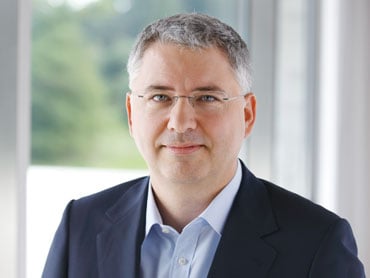
Roche has reported a 9% increase in its Q2 revenues, helping it to shrug off an assault on its ageing cancer blockbusters from biosimilars in Europe.
The Swiss firm reported a growth of 10% in its key pharma division, mainly driven by sales of its newer medicines as concerns grow over its older oncology blockbusters.
The better-than-expected performance has led the company to raise its forecast for 2019 to mid-to-high single digit growth, joining GSK and AZ in having good news for investors in Q2.
This was all achieved despite heavy erosion of sales in Europe thanks to biosimilars – the group’s total sales fell 4% in the region, with Herceptin revenues down 45% and MabThera/Rituxan shrinking 36%.
Roche powered through this decline thanks to Ocrevus (ocrelizumab) for multiple sclerosis which grew 63% to 1.7bn Swiss Francs ($1.7bn) for the first half of the year, and Hemlibra (emicizumab) for haemophilia, which rose 10% to 535m Swiss francs ($538m).
Roche has also announced that it has asked the federal appeals court in the US to keep biosimilars off the market, as Amgen and Allergan started sales of biosimilars this week.
The move would help Roche stall the same decline seen in Europe, giving it months or even years of extra revenues before the inevitable erosion begins.

Severin Schwan
One of the firm’s most promising late-stage pipeline projects is spinal muscular atrophy (SMA) project risdiplam, which is set to rival Biogen’s Spinraza. The candidate is on track to be the first oral treatment for the muscle degenerative disease, making it an option in a competitive field, where Novartis’ gene therapy Zolgensma is already approved in the US.
Another bright prospect is an expansion of Gazyva’s use into lupus nephritis, a field where many other candidates have failed.
Immunotherapy Tecentriq is one of the firm’s key products, and grew 141% in the first half of this year compared to the same period last year, up to 782 CHF ($787m).
Roche now expects to shortly unveil phase 3 results in liver cancer, which will help Tecentriq consolidate its position as the third biggest checkpoint inhibitor behind Merck & Co’s Keytruda and BMS’ Opdivo.
In a call with analysts, pharma division chief Bill Anderson gave a breakdown of Tecentriq’s revenue streams, with around 25% based on its use in small cell lung cancer, 50% from non-small cell lung cancer, another 20% from bladder cancer, and 5% from triple-negative breast cancer, its newest indication.
Finally, the period also saw the approval of two new cancer treatments,Rozlytrek and Polivy.




